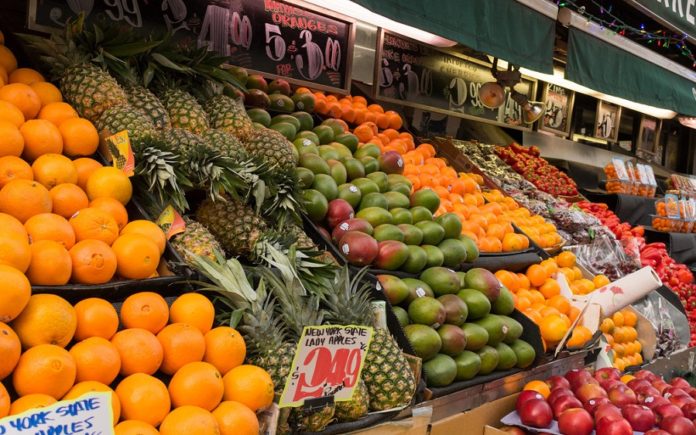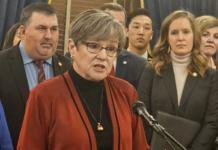A proposal eliminating the state sales tax on food moved out of a Senate committee Thursday but was expanded to cover utilities, delivery charges and allow theaters to keep sales taxes on ticket sales.
The bill would eliminate the state’s 6.5% sales tax on food – one of the highest rates nationally – starting Jan. 1, 2024.
It would still allow local governments to collect food sales taxes, although they would have the option to eliminate the tax if they choose.
Republican state Sen. Caryn Tyson delayed the start date for eliminating the sales tax to 2024 to see how the state budget is affected by the incentive package approved for a $4 billion manufacturing prospect.
The bill would cover food ingredients, including bottled water, candy, dietary supplements, food sold through vending machines, food sold at restaurants, and soft drinks. It would not include alcoholic beverages or tobacco.
As originally drafted, the bill was expected to cost the state $319.8 million in 2022, $771.7 million in 2023 and $786.6 million in 2024.
However, the committee added a couple of provisions that will drive up the cost.
The committee added a measure that would exclude delivery charges from sales taxes. It would begin July 1, 2022, and would cost $4.8 million.
It also rewrote the bill so that there would be no sales tax collected on gas, water, electricity, heat and other sources of heating and lighting.
The loss of sales taxes on utilities would cost the state treasury about $60 million a year, or about $245 million over four years.
Democratic state Sen. Tom Holland sought the sales tax exemption on utilities, citing the corporate income tax cut that was included for businesses in the massive incentive package that just passed this week to land a $4 billion manufacturing plant.
“We went ahead and just handed out more corporate income tax cuts and quite honestly since that was more focused anyway, I would like to see some small business relief,” the Baldwin City lawmaker said.
The proposal would allow local governments to continue to charge a retail sales tax on utilities.
Meanwhile, state Sen. J.R. Claeys of Salina got the committee to amend the bill so it would allow movie theaters to keep the state portion of sales taxes collected on tickets.
The provision was intended to help theaters recover from the fallout of the pandemic when movie making ground to a halt.
Theaters could keep the state sales tax collected begin July 1, 2022 through June 30, 2024.















